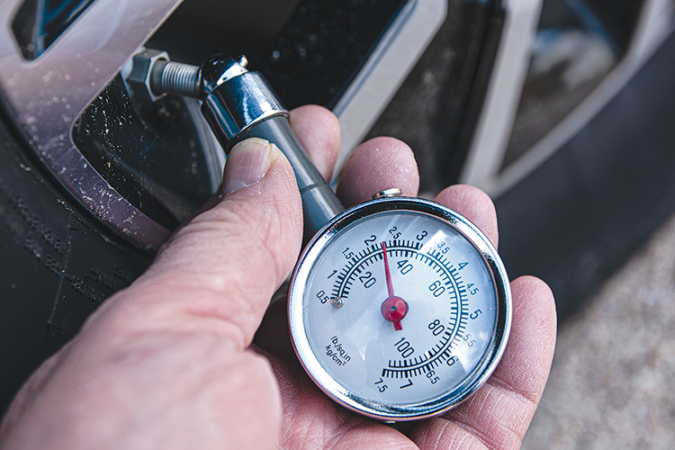Changing temperatures and prepping for road trips are good reminders to check tire pressure, but the reality is, vehicle owners should make it a habit to practice tire safety monthly. Even if tires may appear normal, they’re one of the most important elements of a car, making it critical to perform routine maintenance.
Here’s how you can check tire pressure on your own:
• Locate a tire pressure gauge, whether it’s one you find in your garage, borrow from a neighbor or purchase at a local auto parts store.
• Check pressure in the morning before the car has been used or let it cool down for a few hours after use. Friction from driving causes tires to warm up, affecting air pressure.
• Remove the cap from each tire’s air valve stem. Place them in a safe location where you can’t lose them.
• Press the gauge down on the stem of the tire for a few seconds, and don’t fret when you hear the air hiss – it’s normal.
• Check the reading on the air pressure gauge and compare it to the recommended level, which can typically be found on a sticker inside your driver’s side door or in the owner’s manual.
• Inflate the tires, as necessary, then replace the air valve caps on each tire. (Family Features & eLivingtoday.com. Photo courtesy of Shutterstock)




